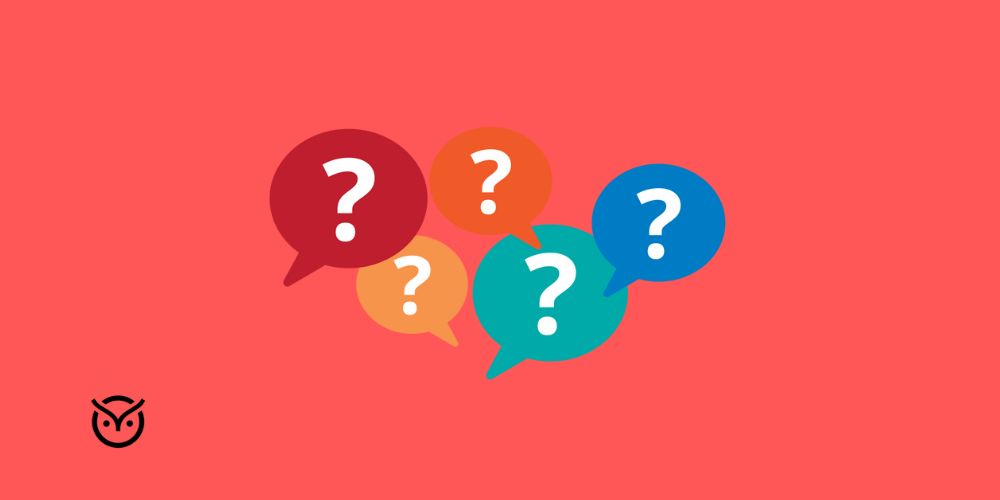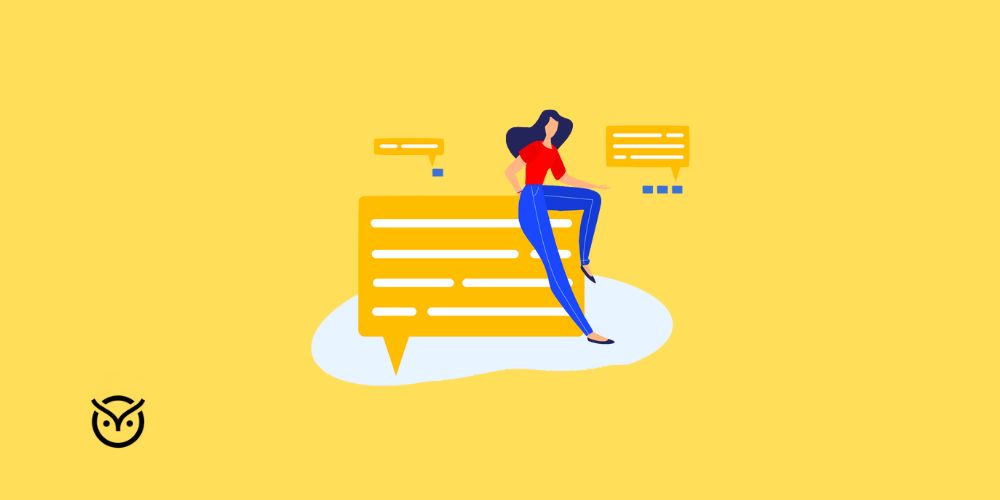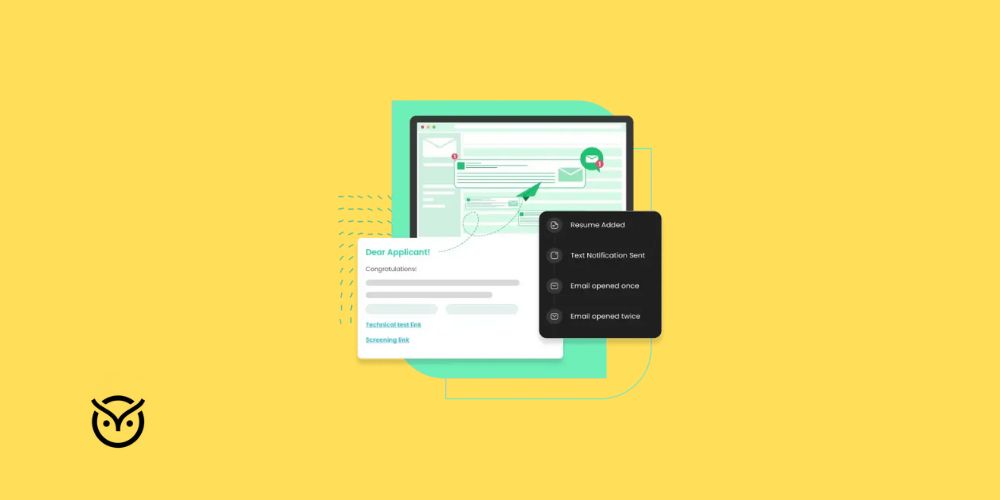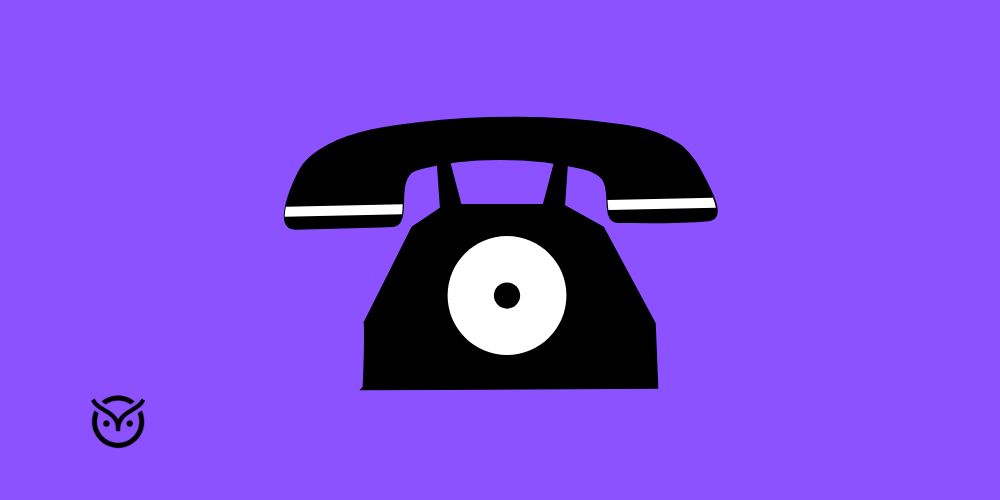
TL;DR
- Phone interviews are key first filters. No visuals, just voice and clarity.
- Prep by researching the company, practicing answers, and testing your setup.
- Keep answers clear, natural, and under 90 seconds. Don’t read off a script.
- Ask smart questions, avoid multitasking, and follow up with a thank-you email.
- Vibe matters. Speak with energy, smile while talking, and end on a strong note.
You finally land that first call from a potential employer, great! But instead of a video chat or face-to-face meeting, it’s a phone interview. No facial cues. No eye contact. Just your voice, your words, and your ability to connect, without any visual backup. It’s a format many underestimate, and that’s exactly where good candidates go wrong.
But the good news is that phone interviews are highly predictable when you know what to expect. Mastering how to answer on phone interview calls isn’t about having a radio voice or reciting memorized lines. It’s about knowing the format, preparing smartly, and communicating clearly. This blog will walk you through everything you need to turn that “hello” into a job offer.
Why Phone Interviews Matter More Than Ever
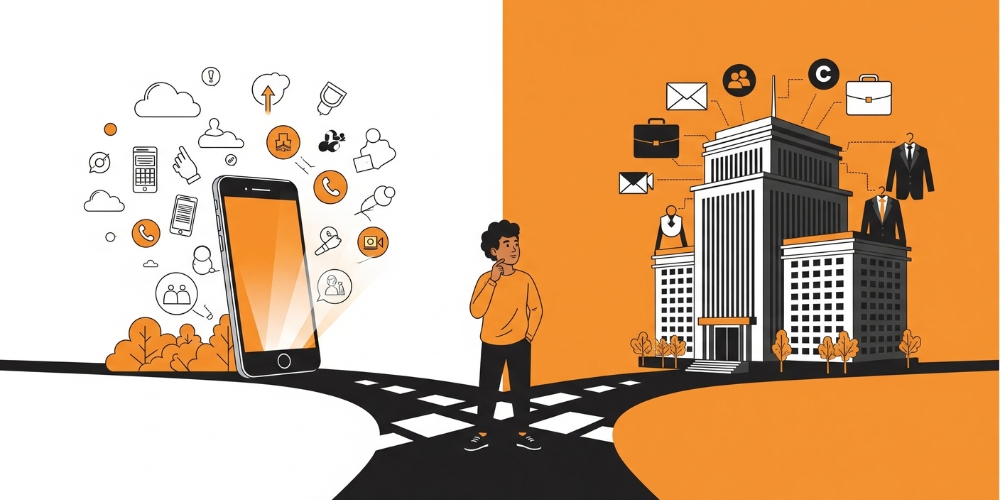
Phone interviews have become the gatekeepers of modern hiring. Before the pandemic, 79% of employers relied on phone or face-to-face interviews for first-round screening. But by early 2021, video interviews became the top choice, with 86% of employers preferring them for initial interviews. With hybrid and remote work on the rise, phone interviews help companies quickly screen a high volume of candidates without the scheduling headaches of in-person meetings.
More importantly, these interviews can sometimes be the only live conversation you get before a decision is made. In fact, for remote-first roles or contract-based positions, the entire hiring process might be conducted over the phone.
So, if you’re still wondering what is asked in telephonic interview rounds, the answer is: a lot more than just small talk. It’s a real test of your communication, interest, and fit. That’s why brushing up on phone interview techniques and following clear phone interview guidelines is essential to standing out.
Why Phone Interviews Matter More Than Ever
How to Prepare Before the Call
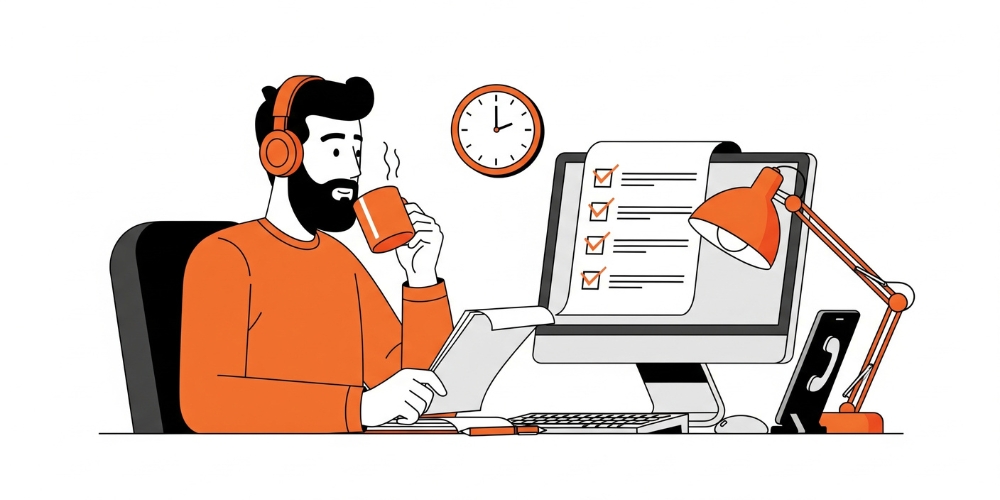
If you’re unsure how to prepare for a phone interview, you’re not alone. Many candidates underestimate phone screenings and show up unprepared, thinking they can “wing it.” But preparation is everything because communicating clearly and confidently when the call comes in is the only thing that can help you.
1. Research the Company Like You’re Already an Employee
Researching the company is your secret weapon. If you want to speak with confidence instead of sounding like you memorized a script, dive into their recent projects, skim through press releases they’re proud of, and browse the reviews on Glassdoor. For startups, their LinkedIn and blog are goldmines. They usually drop the real behind-the-scenes stuff there.
2. Practice with Common Phone Interview Questions
Winging it? Not a great idea. Run through a list of phone interview questions and answers before the call. Start with the basic common phone interview questions that show up in nearly every screening:
- “Tell me about yourself.”
- “Why are you interested in this role?”
- “Walk me through your resume.”
- “What are your salary expectations?”
- “What are your strengths and weaknesses?”
If you’re eyeing a tech or IT role, expect a few IT phone interview questions and answers. You might hear things like:
- “Explain a recent technical challenge you solved.”
- “How do you stay updated with new technologies?”
- “How do you troubleshoot system outages?”
And if the job leans toward support or network roles, study those call interview questions and telephony interview questions.
3. Set Yourself Up Physically and Mentally
Choose a calm, distraction-free space where you can really focus. Switch off notifications and close any programs that might pull your attention away. Keep some water within reach in case your throat gets dry during the conversation. If you’re taking the call on a mobile, double-check that it’s fully charged and the signal is strong enough for a clear line. And even though no one’s watching, dressing like it’s a real interview can help you get in the zone mentally.
4. Use a Cheat Sheet but Don’t Read from It
It’s okay to keep bullet points on hand with your key achievements, numbers, or reminders. But don’t script your answers. Interviewers can tell when you’re reading. Instead, practice out loud beforehand to sound natural.
5. Know the Questions You’ll Ask
One of the most overlooked parts of the process is not preparing questions to ask on telephone interview rounds. Always have 2–3 ready, such as:
- “What are the top priorities for this role in the first 90 days?”
- “What does success look like in this position?”
- “Can you tell me more about the team I’d be working with?”
Having thoughtful questions signals your genuine interest and shows you’ve done your homework.
6. Test Your Gear
Whether you’re using a mobile or landline, do a quick test. Using Bluetooth or wired headphones is better than a speakerphone. In fact, when people ask, “Should I use headphones or speakerphones?”, go with headphones. The audio is clearer, and you’ll reduce the risk of echo or missed words.
Interview Prep Lightning Round
You have 30 seconds to answer 5 quick questions about how to prep for a phone interview. Ready?
Common Phone Interview Questions and How to Answer Them
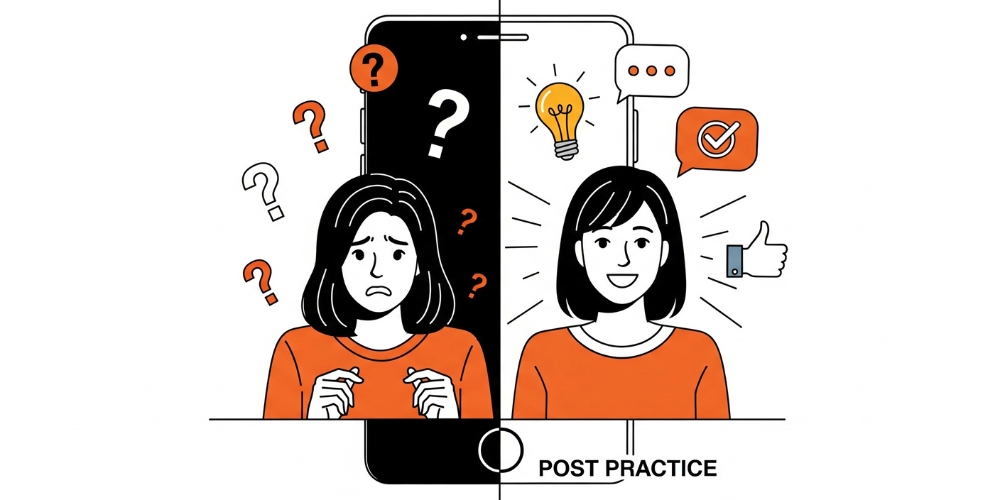
Knowing what kind of phone screening questions to expect gives you a big advantage. Below are some common phone interview questions and simple tips on how to tackle each one with confidence.
“Tell me about yourself.”
Tip: Keep your tell me about yourself answer short (under 2 minutes). Do not simply reiterate your resume; highlight your career best and why you are a fit for this particular role.
Example: “I’m a content strategist who’s spent five years helping SaaS brands optimize their conversion rates through SEO and copy. Most recently I was project lead on a team that increased organic traffic by 45% within six months, and I’m eager to bring those strategies with me.”
“Why are you interested in this role?”
Tip: Employers want to hear that you’re genuinely enthusiastic, not just applying to every job under the sun.
Tie your answer to the company’s mission, product, or team culture, based on your research.
“What are your strengths and weaknesses?”
Tip: Stay away from stock answers such as “I’m a perfectionist.” Instead, emphasize your strengths as they pertain to the position. As for the weakness questions, cast your weaknesses in the realm of those you’re currently working to improve yourself in.
“What’s your salary expectation?”
Tip: It’s okay to give a range, but back it with research. Use tools like Glassdoor, Levels.fyi (for tech), or PayScale to find local benchmarks. If you’re unsure, say you’re open to negotiation after learning more about the role.
“What is your experience with [specific skill/tool]?”
Tip: Be honest, but also highlight your willingness to learn.
Example: “I’ve used Salesforce in my previous job to manage pipelines and track follow-ups. While I haven’t worked with HubSpot directly, I’m confident I can pick it up quickly.”
These questions help your interviewer gauge your ability to communicate clearly and if you’ve done your homework. If you’re interviewing for an IT or tech positon, however, you are asking for a few more as part of your IT phone interview questions answer:
- “How would you troubleshoot a connectivity issue?”
- “What’s your experience with cloud infrastructure?”
- “Can you explain the difference between TCP and UDP?”
Practice answering these aloud. Record yourself and play it back can help you identify nervous tics or filler words.
Green or Red?
How to Answer on Phone Interview the Right Way
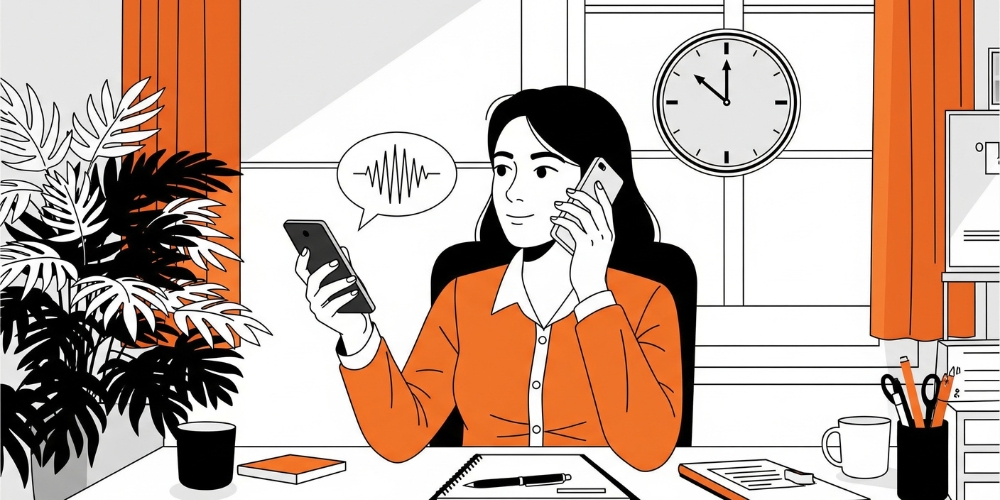
Acing a phone interview isn’t just about reciting the correct facts. It’s more about delivery, tone and structure. Here’s how to pull it all together:
Begin with a Confident Introduction
When the call line picks up, in a clear and pleasant voice respond back with, \”Hello, this is (insert your name here). So: Skip the really casual “Hey”. A short, to-the-point introduction makes the right first impression.
Match Your Energy to the Interviewer
Match the pace, tone, and enthusiasm of your interviewer. If they’re chatsy and chatty, don’t read like a robot. If they’re more formal, take on a cool, professional tone.
Use the STAR Method
For behavioral call interview questions, like “Tell me about a time you worked with a difficult client,” the best to answer is STAR. This approach is all about structure and impact.
Keep a Cheat Sheet but Use It Wisely
As discussed earlier, you can keep a few notes in front of you. Include:
- Metrics (e.g., “Increased retention by 17%”)
- Key project names
- Questions you want to ask
Don’t read off full paragraphs. It’ll sound stiff, and the whole point is to come across as natural and prepared, not scripted.
Pause, Then Answer
When asked a complex question, don’t rush to fill the silence. It’s okay to pause for 2–3 seconds to gather your thoughts. You can even say:
“That’s a great question, let me think for a second.”
It shows confidence and thoughtfulness, traits that stand out.
End on a Positive Note
Close the conversation with appreciation and curiosity.
“Thanks again for the opportunity. I’m even more excited about the role after this call. Is there anything else you need from me at this stage?”
Following these simple phone interview suggestions can make a big difference between sounding unsure and sounding like someone who belongs on the team.
Mock Phone Interview Chat
You’re on a phone interview. Choose how you’d respond at each stage.
Mistakes to Avoid in a Phone Interview
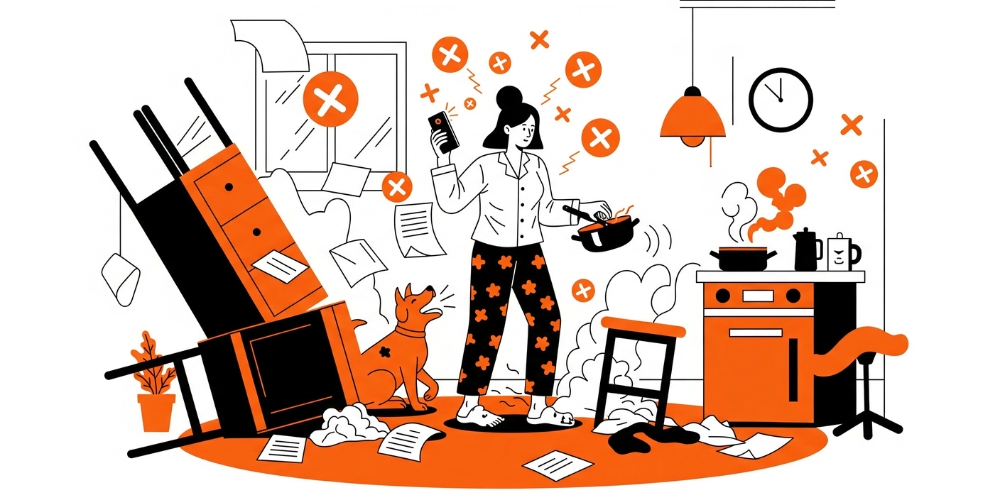
Even seasoned professionals can trip up during phone screenings. Avoiding these mistakes can keep you in the “call back” pile, not the rejection bin.
Multitasking During the Interview
You may think you’re being sneaky, checking emails or pacing around, but interviewers can hear distractions. Focus entirely on the call. No tabs, no typing, and no chores.
Talking Too Much (or Too Little)
Nervous rambling is a common mistake. Keep your answers between 60 to 90 seconds. That’s long enough to explain your point but short enough to keep attention.
At the same time, don’t just say “yes” or “no.” Expand on your answers with short, relevant examples.
Sounding Monotone or Bored
Since phone interviews lack visual cues, your voice has to do all the heavy lifting. Practice sounding interested, even if it means exaggerating your tone slightly.
Tip: Smile while you speak. It naturally lifts your tone and makes you sound more engaged.
Not Preparing Questions to Ask
We’ve said it before, but it’s worth repeating: not having your own questions signals disinterest. Prepare at least three questions to ask on telephone interview calls, in case one gets answered during the conversation.
Using Speakerphone or Poor Audio
Bad audio = bad impression. Don’t risk it. Stick to headphones and avoid speakerphone unless absolutely necessary. If you’re unsure, test your setup beforehand. This is one of the simplest phone interview tips, but also one of the most overlooked.
Not Following Up
Ghosting isn’t just rude in dating. If you don’t follow up, you’re essentially walking away from the opportunity. Send a short thank-you email within 24 hours. Express appreciation, reinforce your interest, and briefly recap what you enjoyed about the conversation.
INTERVIEW RESPONSE LADDER
Climb to the top by choosing the right answers. One wrong step, and you drop. Ready?
Bonus: What to Do Right After the Phone Interview
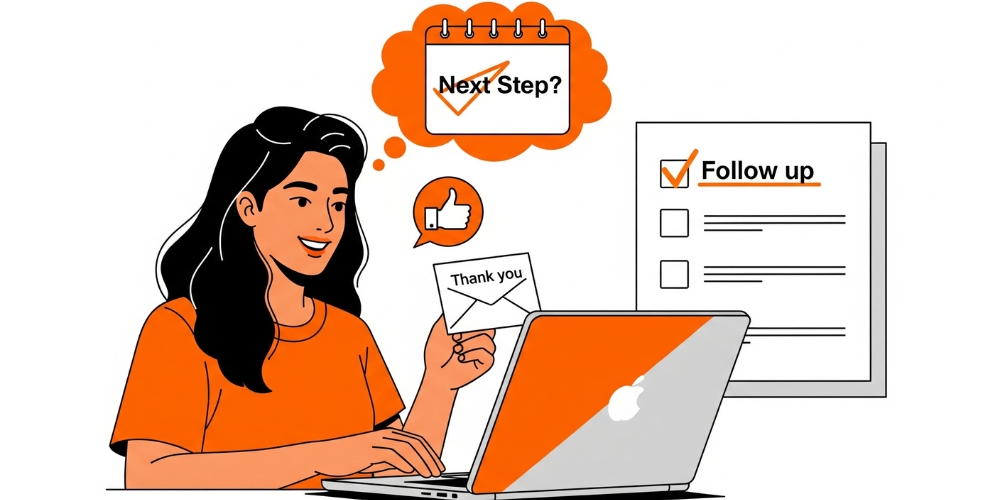
You hung up the phone. You’re tempted to exhale and forget about it for a while. But what you do in the next 24 hours can leave a lasting impression and possibly move you to the next stage.
Here’s a short to-do list of phone interview tips to apply after the end of the line:
Send a Thank-You Email
This isn’t optional. A brief, polite thank-you note demonstrates good manners as well as professionalism and helps maintain momentum. Bring up something specific you discussed, tell him again why you are interested, and thank the interviewer for his time.
Sample:
FOLLOW-UP EMAIL BUILDER
Craft a thank-you email after your phone interview in seconds. Fill in the blanks below.
Jot Down Key Takeaways
Right after the call, write down:
- Who you spoke to
- What was discussed
- Any key dates or follow-ups
- Your impressions of the role and company
This helps you prepare for the next round and remember what matters.
Reflect and Improve
Were there any call interview questions you stumbled over? Take note and rehearse those again. Every interview, even the ones you don’t nail, is a practice opportunity. Keep refining your phone interview techniques.
Conclusion
Mastering how to answer on phone interview calls is less about memorizing perfect lines and more about showing up as your prepared, engaged, and confident self. From practicing your delivery to knowing what telephony interview questions might come up, every step you take builds toward a better impression.
Use these phone interview tips and you’ll go from “just another candidate” to “someone we need to talk to again.”
FAQs
Recruiters often use this time to confirm basic qualifications, ask a few behavioral questions, and evaluate your communication style.
If you do bring it up, be respectful and do your research. Use language like:
“I’m flexible, but based on my experience and the market, I’m targeting a range around [X–Y]. Is that in line with your expectations?”
Just make sure the conversation still focuses on value and not just numbers. This is one of the more sensitive phone interview suggestions, so handle it thoughtfully.
It doesn’t have to be a full suit, but avoid pajamas or anything that makes you feel too casual. Think of it as a mindset tool.
Clear audio = clear communication. That’s why most phone interview guidelines suggest sticking to a simple, quiet setup with a good mic. It makes a huge difference in how confident and focused you sound.

